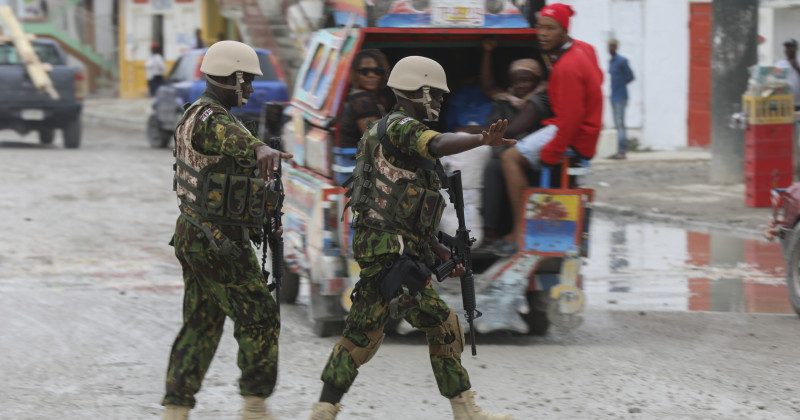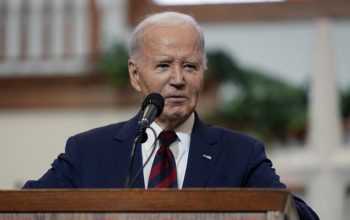news
“Kenya: Between Haiti, Tax Reform and Social Unrest”, an article by Dr. Leonel Fernández
July 8, 2024
At one point, many thought that the recent arrival of a contingent of Kenyan police officers to Haiti would have to be urgently returned to their country of origin. This, because of the violence and anarchy that rattled the African nation in reaction to a tax reform project introduced by the government before Parliament.
The dispatch of a thousand Kenyan police officers to Haiti to restore order and stability in that Caribbean country had been approved by the United Nations Security Council, with the commitment of the United States to finance the operation with the support of US$200 million.
For Kenyan President William Ruto, the operation was part of his active international agenda. His role as a mediator to end armed conflicts in neighboring countries such as Sudan, South Sudan and the Democratic Republic of Congo, as well as his prominent role in the fight against climate change, have placed him as a leader of international scope. In May of this year, he made a three-day official State visit to Washington, where he was received by President Joe Biden as a special ally, at a time when China and Russia are increasing their influence on the African continent.
In spite of President Ruto’s prominent profile as a global leader, highlighted during his Administration, at the domestic level his government has collapsed in terms of popular support.
This situation has been due, essentially, to unfulfilled promises regarding lowering the high cost of living, the creation of jobs and economic growth.
Since mid-2023 various protests have taken place in different parts of Kenya, demanding that the president of that nation adopt urgent measures to alleviate the exasperating living conditions of the majority of the population.
No to Fiscal Reform
However, the most important riots erupted in May of this year when President Ruto’s government, within the 2025 budget project, made a tax reform proposal to increase State revenues from 13.5% to 20% of the GDP in three years.
As announced, the main objective of this reform would be to tackle the country’s public debt, which currently stands at 68% of the GDP. The popular reaction was not long in coming. The first to revolt were the young. Initially, they appealed to the use of social networks such as Tik Tok, X, Facebook and Instagram, and created the hashtag #RejectFinanceBill2024, to make a direct call for the rejection of the tax reform project.
For Kenyan President William Ruto, the operation in Haiti remained part of his active international agenda.
When the tax reform plan was formally introduced to Parliament, these same young people, who ranged from Generation Z to Millennials, organized a peaceful protest in front of the Legislative complex, something unprecedented in Kenyan history.
The government’s response, however, was violent. Both the police and the army were used to suppress the opposition to a tax reform that would further aggravate the precarious material conditions of the majority of the population of the African country. More than 20 were killed in this first encounter in the clash that took place between crowds and law enforcement. Nearly 300 were seriously injured, while hundreds were arrested.
In his address to the nation, the Head of State thundered. He labeled the youth organizations that had sponsored the strike against the reform criminal gangs. He threatened to increase the use of force and even called those who had participated in the demonstration traitors to the homeland. This further inflamed the mood. Even the paternal sister of former US President Barack Obama, Rita Auma, launched strong criticism against her country’s government for what she considered the excessive use of repressive means.
The protest spread throughout Kenya. The people defied the forces of law and order. Fear had evaporated. The government had been put on the defensive.
Under these circumstances, it was proposed to modify some clauses of the reform plan. For instances, suggestions were made to eliminate taxes on bread, onions, cooking oil, as well as on other various edible products.
But the country’s youth, and the people in general, did not accept. They would not budge a single inch. They did not back down. They demanded the complete elimination of the reform plan.
A Government Adrift
The repression continued. In the end, according to several international organizations, some 39 individuals were reportedly killed and nearly a thousand wounded. Even the Secretary General of the United Nations, Antonio Guterres, raised concern regarding the events that were taking place in the most important country in East Africa.
However, the tenacity of the country’s youth and the Kenyan people in general forced the government to repeal the controversial tax reform law, giving them a stunning victory.
However, as a result of the deaths and injuries provoked by the social uprising democratic governance in Kenya has been severely affected. Now, what is being demanded is not just to avoid an increase in taxes on basic family items, but something more drastic: the resignation of William Ruto as President of the Republic.
Tension and conflict over tax reform are reproduced in different parts of the world. Years ago, we witnessed the riots that took place in Colombia, during the government of President Iván Duque, due to a similar situation. And now, more recently, in Argentina, under the current government of President Javier Milei, with the approval of the “Ley Bases.”
It seems inevitable that in order to achieve their goal, these reform processes require an invariable condition: to be politically viable. Otherwise, chaos and ungovernability will ensue.
Kenya is the latest great example, although we hope that it will not be so decisive as to force the group of police officers sent to Haiti to now return to their place of origin in order, paradoxically, to establish order and stability.





